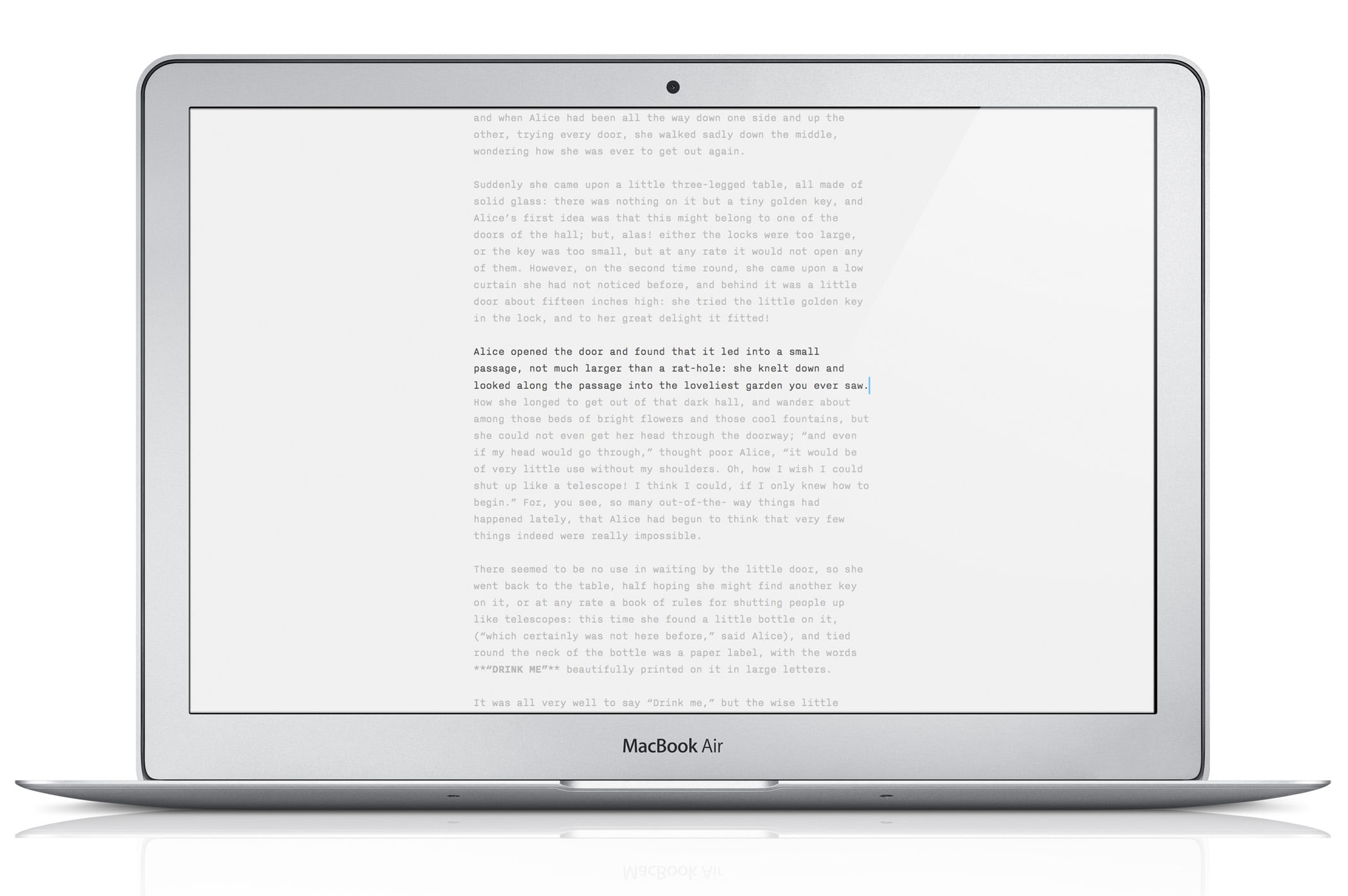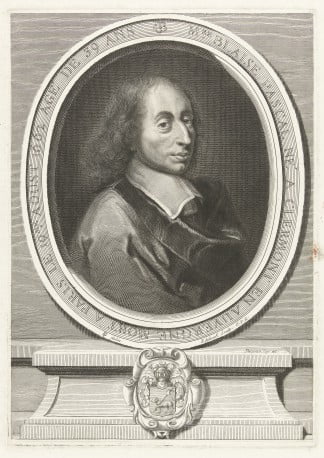I used to spend too much time on writing. Sometimes it took me a whole day to write a post of only 500 words. When I look back on these days of toil, I realize the actual writing had only cost me around an hour. The other hours were devoted to staring at the screen and relentlessly editing the article. My mistake? I had mixed two writing processes:
- the writing process
- the editing process
I think the second process is easy to get started with. It feels like a job that has to be done. A check mark in a box. But the first process, the writing itself, is a different matter. That’s what they’ve invented procrastination for. That’s why there are so many web sites and magazines about productivity. Coming up with the right story and words is incredibly hard.
No, let me rephrase that. Getting in the flow for coming up with the right story and words is incredibly hard.
I used to allow all sorts of things to distract me while writing. My phone and desktop notifications were obvious culprits. But the biggest distraction of all didn’t seem like a distraction. Actually, I thought it was part of my productive behavior.
Well, no.
Because there’s nothing more distracting during the act of writing than editing.
I behaved like a menacing editor
You might recognize my old behavior. I wrote a sentence and hit the period key. But before starting a second sentence I already found my cursor back at the second word and replacing it with a better synonym.
I kept repeating this. I behaved like a menacing editor criticizing every sentence seconds after I had written it down. No wonder it sometimes took me a day to come up with a short blog post.
By separating the writing and editing process, I’ve become an effective writer. No more staring at blank screens. No more cursing at my text. I get in a flow and the words just come streaming out.
Here’s how I work these days.
Step 1: Start with pen and paper
I don’t open my laptop before I’ve come up with what I want to say. I want to know what my main message will be and preferably I’ve already sketched out the main structure of the article. Maybe I came up with some good key sentences too. This is the best antidote against screen-staring.
Step 2: Open the right writing tool

I use three different apps to write:
- iA Writer. This app blocks out almost every urge to edit. When in ‘Focus Mode’, iA Writer only shows you the sentence you’re writing at that point and fades out the other ones. Also, your mouse doesn’t work. So jumping to a different section in the text is more difficult.
- Ommwriter. Ok, this might sounds cheesy, but somehow Ommwriter gets me in the perfect mood to write. It plays ambient music and gives sound feedback every time you hit a key. This is incredibly satisfying.
- WordPress. This was a terrible tool for focused writing. But the WordPress community has built a fine focus mode for its editor so I find myself choosing WordPress more often.
When I’m done with iA Writer or Ommwriter, I copy/ paste the text to my CMS.
Step 3: Write. Edit afterwards
When I’ve started writing, nothing should threaten my flow. If a sentence sucks, fine. I’ll fix it later. If I’m not sure about a fact or how to spell a name, I won’t open Google. Instead I’ll just type some giant XXXX’s so I can come back later to check them. If I want to add a video, I just type ‘VIDEO HERE’, instead of heading to YouTube to grab the embed code.
After I’ve said everything I wanted to say, the hardest part is behind me. I’ve finished the procrastination-inducing creative process. Now it’s time to get the job done. To check off the boxes.
Step 4: Listen to Blaise Pascal
First of all, I go back to all the XXXX’s and look up the right years, spelling and facts. Once it’s a clean text, I focus on cutting all the parts that don’t support the main premise of my article. Just like almost every human being, I have a tendency to show off how much I know. So I write all these elaborations, showcasing how well all my theories are backed up with knowledge. Or I keep on mentioning more examples.
The result? A bloated blog post.
I’ve learned to listen to the French polymath Blaise Pascal (1623 – 1662). He once said:
“I have made this longer than usual because I have not had time to make it shorter.”

Editing takes time. Also, a willingness to kill your darlings. No, let me rephrase that. You need a willingness to save your darlings for a different blog post. When I’ve written something that doesn’t support the main message of my article, I cut and paste it to a new draft. The useless elaboration then serves as an inspiration for a new blog post.
When I joined Dutch daily nrc.next to start a behind the scenes-blog for them, I decided to limit the blog posts to 300 words. By doing so, I hoped newspapers writers weren’t intimidated by the task of blogging about their work. What I hadn’t expected, is that this limitation would improve my writing drastically. I had to weigh every word. Adverbs perished. So did useless elaborations.
Cut as much useless words and sentences as possible. The second-most important currency on the web is attention. You don’t want to waste your reader’s time, right?
Step 5: Read out loud and backwards
Remove as much grammar and spelling errors as you can find. Use an intelligent spelling checker, like the one from WordPress’s Jetpack plugin. Here are two other good tools:
- Writefull. This is a handy tool to check whether you’ve used the correct expression and if you should use a more common synonym. It works regardless which app you’re writing in. You just select the phrase you want to check. Writefull then searches how many times the phrase has been used before. It uses the Google Books API for its references. This is great, since these book texts are usually edited and fact checked. Writefull’s price is five dollars.
- Hemingway. Everyone knows Papa wrote bold and clear literature. To make his style more achievable for everyone, this free web app highlights complicated sentences, adverbs, use of passive voice and complex words. I often run my texts through the Hemingway app. It always forces me to state things more clearly.
After cleaning up the article I read it out loud. It’s the best way to check whether your sentences run well. Don’t worry, most of my colleagues are now used to my whispering.
If you have the tendency to overlook your own typos, here’s a good albeit a bit unorthodox, remedy. You’re missing errors because you are familiar with what you’ve written. Rather than checking your words letter by letter, you scan them. That’s why you should read your article backwards. Reading from right to left (or left to right, depending on your script) gives you a fresh view on your text. You’ll find the errors you used to overlook.
Despite my efforts, my texts aren’t perfect. That’s because English is my second language. But I hope to get my message across.
When all this is done, I go to the ‘VIDEO HERE’ and ‘SCREENSHOT HERE’ mentions and embed the right media. I add links, tag the article and then hit that delightful button.
‘Publish’.


Reacties
101 reacties op “How to become an effective writer. These five steps worked for me”
retweeted this.
retweeted this.
@ejpfauth Stap 1: klik niet op deze link. Mislukt :)
@saulvanstapele hahaha :)
retweeted this.
favorited this.
favorited this.
favorited this.
favorited this.
favorited this.
favorited this.
favorited this.
favorited this.
favorited this.
favorited this.
favorited this.
@ejpfauth Definitely going to try and implement some of these tips in my ‘process’. (Not sure mine deserves to be called a process!)
If you write/blog then this is a must read from @ejpfauth on how to be more effective when writing pfauth.com/blogging-advic…
favorited this.
favorited this.
favorited this.
favorited this.
favorited this.
@ejpfauth Nice, zinvolle apps/tips ook. Voor foutdeductie helpt het ook om Google je tekst te laten voorlezen #handig
favorited this.
favorited this.
favorited this.
favorited this.
favorited this.
favorited this.
favorited this.
@neilswmurray haha I wasn’t sure about the term process either. But good to hear this was of help. Let me know how it turned out! :)
retweeted this.
favorited this.
retweeted this.
favorited this.
favorited this.
favorited this.
likes this.
favorited this.
favorited this.
favorited this.
favorited this.
retweeted this.
retweeted this.
retweeted this.
favorited this.
favorited this.
favorited this.
favorited this.
favorited this.
favorited this.
retweeted this.
favorited this.
favorited this.
favorited this.
favorited this.
favorited this.
favorited this.
ah! Bewaar geschrapte stukken als nieuwe draft “@ejpfauth: How to become an effective writer. pfauth.com/blogging-advic… ”
favorited this.
retweeted this.
favorited this.
favorited this.
favorited this.
favorited this.
favorited this.
retweeted this.
favorited this.
favorited this.
retweeted this.
favorited this.
favorited this.
favorited this.
favorited this.
favorited this.
“@ejpfauth: How to become an effective writer. These five steps worked for me: pfauth.com/blogging-advic…“
favorited this.
favorited this.
favorited this.
favorited this.
favorited this.
favorited this.
retweeted this.
One link and one thought.
– Pastry Box just had a post that works well with this one: https://the-pastry-box-project.net/anne-gibson/2015-january-3/
– For writing I use Ulysses; a beautiful writing tool that syncs over my OwnCloud so I can work on different machines on the same document. http://ulyssesapp.com
favorited this.
favorited this.
favorited this.
favorited this.
retweeted this.
favorited this.
favorited this.
Ik herken wel wat van de bovengenoemde problemen, jammergenoeg. In ieder geval bedankt voor de tips, zal wel van pas komen in het schrijfproces!
favorited this.
Pretty good article, it’s something I haven’t been actively thinking about but was already doing sometimes. When I think of it the best writing sessions have indeed happened when I was actually writing instead of editing. I’d like to add one more tip, don’t be afraid to write down a mistake. It doesn’t matter, that’s for a later moment.
Extra tip: Zenwriter is a great writing tool for Windows OS.
Pretty good article, it’s something I haven’t been actively thinking about but was already doing sometimes. When I think of it now… the best writing sessions did indeed happen when I was actually writing instead of editing. I’d like to add one more tip, don’t be afraid to write down a mistake. It doesn’t matter, that’s for a later moment.Extra tip: Zenwriter is a great writing tool for Windows OS.Thanks for sharing.
reshared this.
likes this.
favorited this.
Excellent advice. You inspired me to do two sessions of non stop original writing this morning! Thank you : )
I am also reminded of another helpful blogpost on writing by Jack Cheng, called “Habit Fields”. Jack, who is a published writer, an avid reader, a former website designer and a true writer’s writer, writes on how creating routines and spaces help support your writing habit. Heartily recommended!
Personally, I need writing like I need to breathe. Writing makes me happy. It helps me love myself and condense, get to the essence, the best of me. But I also need to be reminded of why I need to write – doubts get in the way. Like who could ever care about reading what I wrote? (Apart from my mom).
I collect some of my why’s on a Pinterest board – take a look at either of these links after you have successfully sat down and written for a stretch of, say 45′ yourself. Or before. To get inspired : )
My pinterest board: https://www.pinterest.com/spllfndr/to-write-why-how/
It includes the link to Jack’s article, but for ease’s sake: http://alistapart.com/article/habit-fields.